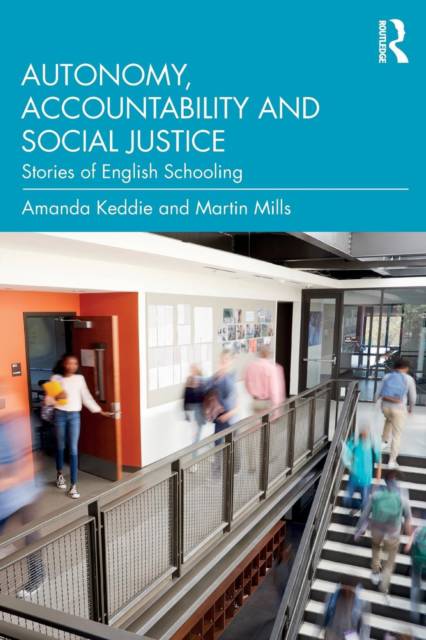
- Afhalen na 1 uur in een winkel met voorraad
- Gratis thuislevering in België vanaf € 30
- Ruim aanbod met 7 miljoen producten
- Afhalen na 1 uur in een winkel met voorraad
- Gratis thuislevering in België vanaf € 30
- Ruim aanbod met 7 miljoen producten
Autonomy, Accountability and Social Justice
Stories of English Schooling
Amanda Keddie, Martin MillsOmschrijving
Autonomy, Accountability and Social Justice provides an account of recent developments in English state education, with a particular focus on the 'academisation' of schooling. It examines how head teachers, teachers and others working in diverse education settings navigate the current policy environment. The authors provide readers with insight into the complex decision-making processes that shape school responses to current educational agendas and examine the social justice implications of these responses.
The book draws on Nancy Fraser's social justice framework and her theorising of neoliberalism to explore current tensions associated with moves towards both greater autonomy for and accountability of state schooling. These tensions are presented through four case studies that centre upon 1) a group of local authority primary schools, 2) an academy 'chain', 3) a co-operative secondary school and 4) an alternative education setting. The book identifies the 'emancipatory' possibilities of these approaches amid the complex demands of autonomy and accountability seizing English schools. Informed by a consideration of market parameters and social protectionist ideals, this examination provides rich insights into how English schools have emancipatory capacity.
Autonomy, Accountability and Social Justice makes a major theoretical contribution to understandings of how the market is working alongside the regulation of schooling and the implications of this for social justice. By drawing on the experiences of those working in schools, it demonstrates that the tensions associated with autonomy and accountability within the current education policy environment can be both productive and unproductive for social justice.
Specificaties
Betrokkenen
- Auteur(s):
- Uitgeverij:
Inhoud
- Aantal bladzijden:
- 146
- Taal:
- Engels
Eigenschappen
- Productcode (EAN):
- 9781138104655
- Verschijningsdatum:
- 29/04/2019
- Uitvoering:
- Paperback
- Formaat:
- Trade paperback (VS)
- Afmetingen:
- 156 mm x 234 mm
- Gewicht:
- 226 g

Alleen bij Standaard Boekhandel
Beoordelingen
We publiceren alleen reviews die voldoen aan de voorwaarden voor reviews. Bekijk onze voorwaarden voor reviews.











